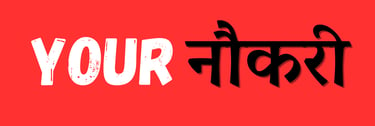Know The Psychology Of An Interviewer
A job interview is more than showcasing skills—it's a psychological exchange. Understanding the interviewer's mindset, biases, and pressures helps candidates manage impressions, build rapport, and tailor responses effectively. This insight boosts confidence, minimizes missteps, and increases your chance of being seen not just as qualified, but as the ideal hire.
6/15/20253 min read
The job interview is a high-stakes dance, a carefully choreographed performance where both parties are trying to make the best impression. For the candidate, the focus is often on conveying their skills, experience, and enthusiasm. But what about the person on the other side of the desk? Understanding the psychology of an interviewer can provide invaluable insights for job seekers, allowing them to better anticipate concerns, tailor their responses, and ultimately, increase their chances of success.
Beyond the Job Description: The Interviewer's Hidden Agenda
While interviewers are tasked with assessing a candidate's fit for a specific role, their decision-making process is far more complex than simply ticking boxes on a checklist. Several psychological factors come into play:
The Quest for Risk Mitigation: At its core, hiring is about managing risk. Interviewers are looking for someone who can not only perform the job but also integrate seamlessly into the team, uphold company values, and avoid becoming a liability. This means they are often subconsciously scanning for red flags, inconsistencies, or anything that suggests potential future problems.
Cognitive Biases: Interviewers, like all humans, are susceptible to a range of cognitive biases that can unconsciously influence their judgment. These include:
Confirmation Bias: The tendency to seek out and interpret information in a way that confirms one's pre-existing beliefs. If an interviewer forms an initial positive or negative impression, they may inadvertently guide the conversation to validate that impression.
Halo Effect/Horn Effect: The tendency for an impression created in one area to influence opinion in another area. A candidate's impressive university or polished appearance might lead to a more positive overall assessment (halo effect), while a minor misstep could disproportionately taint the entire evaluation (horn effect).
Primacy and Recency Bias: Interviewers may place more weight on information presented at the beginning (primacy) or end (recency) of an interview. A strong opening or closing statement can therefore be crucial.
Similarity-Attraction Bias: A tendency to be more drawn to and have a more positive impression of individuals who are similar to oneself (e.g., in background, interests, or even personality traits).
Emotional Intelligence and Gut Feeling: While objective criteria are important, interviewers often rely on their "gut feeling" – an intuitive sense of whether a candidate will be a good fit. This isn't always irrational; it often stems from their own emotional intelligence, picking up on non-verbal cues, rapport, and perceived authenticity. They're assessing not just what you say, but how you say it, and how you make them feel.
The Pressure to Make the "Right" Hire: Interviewers often feel significant pressure to make a successful hire. A bad hire can be costly in terms of time, resources, and team morale. This pressure can make them more cautious and perhaps more focused on finding reasons to say "no" rather than "yes."
Their Own Personality and Experience: An interviewer's personal interviewing style, past experiences with successful and unsuccessful hires, and even their current mood can subtly shape the interview. Some might be more structured and analytical, while others might prioritize cultural fit and interpersonal skills.
Navigating the Interviewer's Mind: Tips for Candidates
Understanding these psychological dynamics can empower job seekers:
Manage First Impressions Carefully: From your appearance to your handshake, your initial impression can trigger biases. Aim for professionalism, confidence, and warmth.
Be Authentic, But Strategic: While authenticity is valued, be mindful of how your personality traits align with the role and company culture. Highlight aspects that demonstrate a strong fit.
Address Potential Concerns Proactively: If you have a gap in your resume or a less-than-ideal job transition, be prepared to address it confidently and positively, framing it as a learning experience.
Demonstrate Self-Awareness and Growth: Interviewers appreciate candidates who understand their strengths and weaknesses and show a willingness to learn and develop.
Build Rapport: Engage in genuine conversation, listen actively, and try to find common ground. A positive interpersonal connection can significantly influence their "gut feeling."
Ask Thoughtful Questions: This demonstrates your engagement, curiosity, and strategic thinking. It also allows you to assess the company culture and whether it's a good fit for you.
Reinforce Key Strengths at the End: Leverage the recency bias by reiterating your most relevant qualifications and expressing your enthusiasm for the role and company in your closing remarks.
Follow Up Thoughtfully: A concise and well-crafted thank-you note can reinforce your interest and professionalism.
The interview is more than just a Q&A session; it's a psychological evaluation where both parties are trying to read each other. By understanding the underlying motivations, biases, and pressures that influence an interviewer, candidates can shift their approach from simply presenting information to strategically influencing perception and building a compelling case for why they are not just qualified, but the right choice. The more you understand what's going on in their mind, the better equipped you'll be to succeed in the interview process.
© 2025. All rights reserved.


